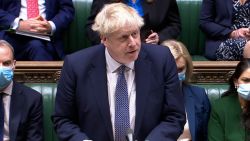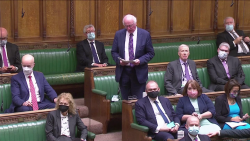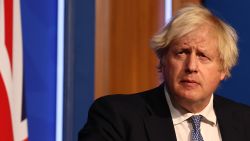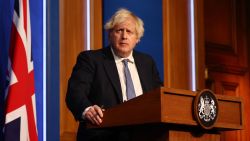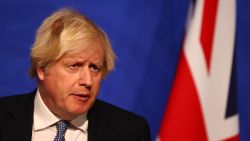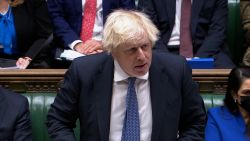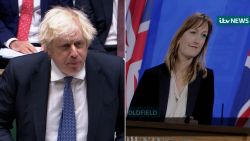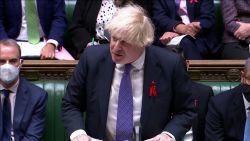Jo Swinson watched the shock results of the UK’s EU referendum roll in from somewhere in the political wilderness.
Having lost her suburban Glasgow seat in the 2015 election, Swinson was in the midst of an unplanned political time-out in June 2016 when Britain voted to leave the European Union.
Unceremoniously dumped from the pro-Europe, globalist Westminster establishment by voters back then, three years on she’s the face of it.
Swinson, the recently crowned leader of the centrist Liberal Democrats, is leading the political movement to undo the results of the referendum that saw 52% of Britons voting to leave the EU, and 48% voting to remain.
In the event of Swinson winning the December 12 general election and forming a government, there would be no discussion, nor a second referendum on Brexit, something her party had long fought for. It’s a bold – some say undemocratic – political move, appealing directly to those who voted to remain. It’s also a risky one.
Can Swinson – or any politician – really win by promising to ignore the will of the majority of voters? Slumping in the polls, with less than a week until election day – the answer, it seems is likely, no. But, while Swinson’s odds of becoming prime minister are extremely long, she doesn’t need to win outright to put Brexit in serious political jeopardy.
United to Remain
Last month, Swinson stood on stage, beaming as she held up her party’s official platform – a detailed vision on policy and spending – but voters didn’t need the booklet to know what the party really stood for. It was already spelled out on the bright orange campaign signs, in plain English: “Stop Brexit. Build a brighter future.”
At a campaign event at a north London boxing club last month, Swinson confidently showed off her jabs and hooks to the assembled press. Outside the ring, she was equally confident defending her party’s position on Brexit, despite critics’ warnings over what it means for democracy.

“This is a democratic election now, and people can make a choice,” she said in her mild Scottish accent. “It’s an honest message because we’re saying, ‘If you elect a Liberal Democrat majority government, we’re not going to proceed with Brexit.’”
Asked if that position means she doesn’t respect the 52% of people who voted “leave,” or if she believes she knows better than them, she shot back, “I respect them – and I respectfully disagree with them.”
Swinson’s Liberal Democrats have signed on to “Unite to Remain,” an agreement brokered with the Green Party and the Welsh independence party Plaid Cymru. The Liberal Democrats have agreed to step aside in 17 constituencies in England and Wales, while the other two parties have cleared the way for the Liberal Democrats in 43, to avoid splitting the remain vote.
Heidi Allen, a Conservative-turned-Independent MP who later joined the Lib Dems, has been the driving force behind Unite to Remain. She tried to get the Labour Party on board, but an agreement to stand down in any seat was a non-starter.

“I still think this has the potential to be game-changing, but of course it could have been far greater than that. Labour are fools, I’m afraid,” said Allen. “The country will pay the price as a consequence.”
Allen describes Swinson as “young, dynamic, vibrant,” and “absolutely the right person to lead the charge for remain.”
But when asked her thoughts on the Liberal Democrat plan to cancel Brexit without a vote, she wouldn’t answer. “My civilian opinion is, I’m not going to give you one.”
Even those within her own party accept that Swinson’s position is perhaps too strong. Former party leader Vince Cable notes that although the promise to revoke Article 50 outright reflects the strength of feeling among many within their party, Swinson has toned down her message in recent weeks.
He says she’s now “emphasizing in practice we are not going to win an overall majority and our main objective in the next parliament will be to seek a people’s vote.”
“She has realized that we need a broader base of support amongst people who want to remain but don’t care quite so passionately about it,” he said.
Backlash for ignoring leavers
Swinson’s promise to cancel Brexit likely hasn’t done much to heal the Leave/Remain divide in the UK – she’s even taking heat from inside her own Unite to Remain alliance.
In early November, Green Party candidate Caroline Lucas was caught on a hot mic saying exactly what she really thinks about Swinson’s approach to Brexit.
“If you wanted to send a message to 17.4 million people that you don’t give a f*** about what they just said, why don’t you just say so?” she said, in a clip posted by news website JOE.

Asked about the clip by LBC talk radio host Iain Dale, Lucas said she “didn’t realize that bit was being recorded, although I stand by the sentiment.”
Every night on his radio phone-in show, Dale hears from people who feel it is the political establishment calling the shots, not them. One caller recently said there wasn’t a center-left party that hadn’t “betrayed the vote that the referendum called for.”
That caller was right. Of all the major political parties, only one, the Conservative Party, has promised to follow through with Brexit. The Scottish National Party plans to vote down the Brexit deal Boris Johnson secured with the EU, the Labour Party is promising to negotiate a new deal, and then put that one to voters in a second referendum.
After more than three years of failed attempts to resolve the Brexit conundrum, Leave voter Dale believes politicians of all stripes have been merely pretending to go along with Brexit since the 2016 vote.
“They pretend in the name of democracy, but what they are actually doing is subverting democracy. It’s a very dangerous game they’re playing,” he told CNN. “The people who lost the referendum can’t really bear it.
“They think that the people who voted for Brexit were stupid, thick, racist, whatever, and they just haven’t come to terms with that result and I’m afraid I don’t think they ever will,” he added.
A fresh face next to Johnson and Corbyn
During a BBC town hall last month, Swinson was mocked by an audience member who asked whether she regretted declaring that she could become the next PM, and if she now agreed “how ridiculous that sounded?” She insisted that stranger things have happened in politics.
Swinson herself has beaten the odds before. First elected in 2005, she became the first Liberal Democrat ever to win her Scottish constituency of East Dunbartonshire. She was also the youngest MP elected that year, at just 25, earning her the informal title of “Baby of the House.”
At just 39 years old, Swinson’s is a comparatively fresh face next to those of Conservative leader Boris Johnson (55), or Labour’s Jeremy Corbyn (70), but she already has more than a decade of experience as a Member of Parliament.
Swinson also served as a junior government minister after Lib Dem leader Nick Clegg took his party into a coalition government with the center-right Conservative Party in 2010. A passionate campaigner for gender equality, last year she brought her baby onto the floor of the House of Commons to make the point that MPs who are new mothers should be allowed to vote by proxy.

Cable, under whom Swinson served as deputy, says feminism is a big driver in Swinson’s politics, and that her stance has attracted a new kind of support for the party.
“There are a lot of young women who probably find her leadership on this issue inspirational – although it has caused some problems with the older generation who perhaps are not as committed to the MeToo agenda,” he told CNN.
Cable says Swinson’s personal and professional resilience set her apart as a “tough character,” recalling the election of May 2015 when both she and her husband – former MP Duncan Hames – lost their seats. Swinson won her seat back in the 2017 election.
A powerbroker in a minority government?
The success of Swinson and Unite to Remain will depend on the success of the Liberal Democrats. In 2017, the party took 7.4% of the popular vote, but just 12 of the 650 seats in the House of Commons. It is polling around 15% nationally, but it’s unclear if that will translate to seats. The upper target of 80 seats would still leave them far behind the two main parties.

The party is aiming to peel off pro-remain Conservative and Labour voters – capitalizing on the Brexit-at-all-cost approach of Johnson, and the much foggier position Labour has staked out.
Until last month, Jeremy Corbyn had repeatedly declined to say whether he would campaign to leave or remain in a second vote. Now he says he would stay neutral during a second vote, though most of his party would back the “remain” side.
Whether you agree or disagree with it, the Liberal Democrat position is crystal clear – on paper anyway.
“It shows a fundamental disrespect [for voters], but it’s actually clever positioning because she can go into the election saying to the 48%, ‘I’m your woman to stop this happening.’ I suspect she’ll be quite successful,” said Dale.
Quentin Peel, of the British policy think tank Chatham House, has a very different take on the Liberal Democrats’ Brexit policy shift.
“Tactically it looked quite sensible because it made them clearly different from Labour, but it seems to have slightly blown up in their faces,” he said. “As there’s a general exhaustion among voters in the country – they just want to get the whole thing over and done with – there is a bit of a backlash.”
Peel said that Swinson’s real influence may be as a powerbroker in a minority government.
“If Boris Johnson doesn’t win an outright majority, then the likely outcome of this election is not going to be a Liberal Democrat victory, it’s going to be a hung parliament – but a hung parliament in which all the opposition are committed to one degree or another to a second referendum.”
In that scenario, Swinson doesn’t need to occupy 10 Downing Street to stop Brexit. She just needs to keep Johnson from winning any more seats.
Sharon Braithwaite contributed reporting.


